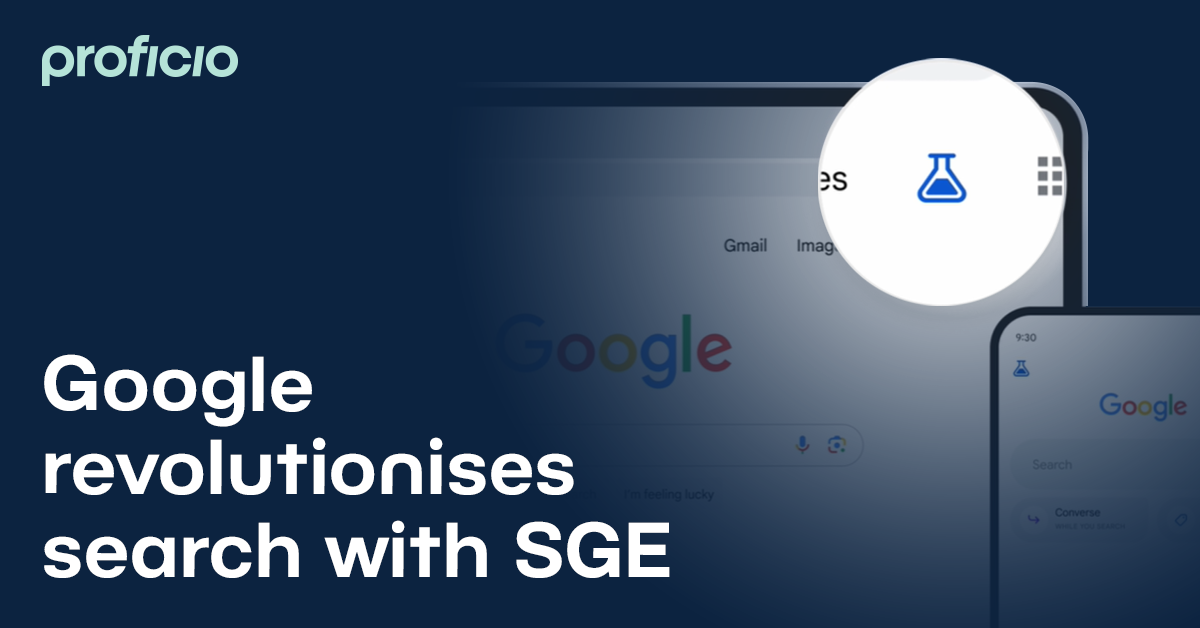Since May 2023, Google has been testing a new form of search results: SGE (Search Generative Experience). Initially only available for English-speaking users in the USA, SGE enables more informative results and a more efficient search experience in more than 120 countries and 7 languages thanks to generative artificial intelligence (update 8.11.2023).
As performance marketers, we are now faced with the question of how user behavior will change, but also what effects SEO and SEA will have on us.
What exactly is Google SGE?
SGE (Search Generative Experience) is a new form of search results for Google users that uses generative AI to provide more information and context for searches. SGE uses advances in artificial intelligence to help users understand topics faster, answer questions more easily and complete tasks more easily.
This all happens in so-called conversation mode, which allows the user to ask follow-up questions in the same context and uses this to show different perspectives or deeper details. The Search Generative Experience can also be helpful when shopping, as it shows the most important product details, current reviews and prices from different retailers at a glance when searching for a specific product.

At first glance, SGE may look very similar to the AI chatbot Google Bard; even the data source is identical for both models. But there is one major difference: SGE is not a chatbot, not a language model, you cannot chat or speak with SGE. The algorithm delivers results for searches based on information from indexed and crawled websites - just like the previous Google SERP.
It is not yet clear when the Search Generative Experience will also be available in EU countries.
Tests and initial figures
According to tests on Onely.com, the SBU displayed a result for 80% of search queries. The vast majority of SERPs therefore include more complex, AI-generated search results that take up considerably more space on the page.


